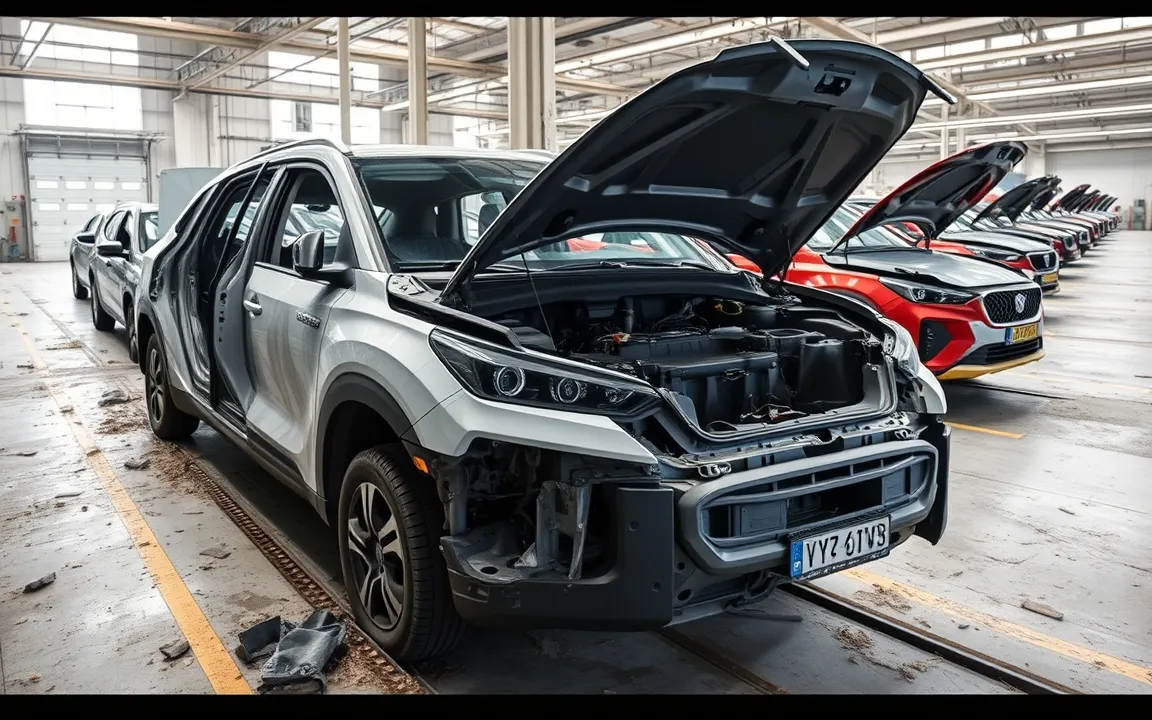China’s largest electric vehicle (EV) maker, BYD, is slowing down its production and expansion plans, as per a Reuters report.
BYD has canceled night shifts and cut output by at least one-third at several factories across China, the news agency reported, citing sources.
The measures are said to have affected at least four of BYD’s production sites.
One source attributed the move to cost-saving efforts, while the other cited underwhelming sales figures as the reason.
The company has also put a pause on some planned new production lines, reflecting a broader reassessment of output targets amid intensifying price competition and slowing market momentum in China’s highly saturated EV landscape.
Why is BYD under pressure?
BYD, which surpassed Tesla last year to become the world’s largest EV manufacturer, sold 4.27 million vehicles in 2023, with nearly all of them in China.
The company had initially set an ambitious 2025 sales target of 5.5 million units — nearly 30% growth — but signs suggest it may struggle to hit that goal.
Despite a flurry of price cuts — including slashing the entry-level price of its cheapest EV model to just 55,800 yuan (approximately $7,800) — reports suggest that sales may have failed to keep pace with output.
Data from the China Association of Automobile Manufacturers (CAAM) shows that BYD’s year-on-year production growth dropped sharply to 13% in April and a marginal 0.2% in May — the slowest rates since February 2024.
Production volumes in April and May were also about 29% lower than BYD’s average output during the fourth quarter of 2024, signaling a shift from the ramp-up seen in the same period over the last two years.
Demand dries up for BYD?
The slowdown comes amid a growing inventory glut.
A May survey by the China Automotive Dealer Association (CADA) found that BYD dealers were sitting on an average of 3.21 months’ worth of unsold inventory — more than double the industry-wide average of 1.38 months.
As per the report, one large BYD dealer in Shandong province recently shut down operations, with more than 20 of its outlets found to be either deserted or closed, according to state media.
As the inventory overhang grows, industry associations have started calling on automakers to curb their production targets and ease pressure on dealerships.
The China Auto Dealers Chamber of Commerce in early June urged automakers to align output with actual sales and avoid overwhelming dealerships with excess stock.
The group warned that continued price wars are eroding profitability and straining liquidity across the sector.
Auto dealers also appealed to manufacturers to issue cashback incentives within 30 days to ease financial pressure, as many face rising debt loads in a fiercely competitive environment.
The deepening discounting and thinning margins have drawn increased scrutiny from Chinese regulators.
The long-standing practice of aggressive price competition is now under examination amid concerns about systemic stress on the entire EV value chain — from suppliers to assemblers and end dealers.
In response, Chinese automakers, including BYD, are increasingly pivoting to international markets to drive future growth.
In the first five months of 2025, BYD sold 1.76 million vehicles, with about 20% of them exported.
The move is seen as part of a broader diversification strategy aimed at offsetting domestic weakness.
The post Tesla rival BYD is reportedly scaling back production: here’s why appeared first on Invezz
